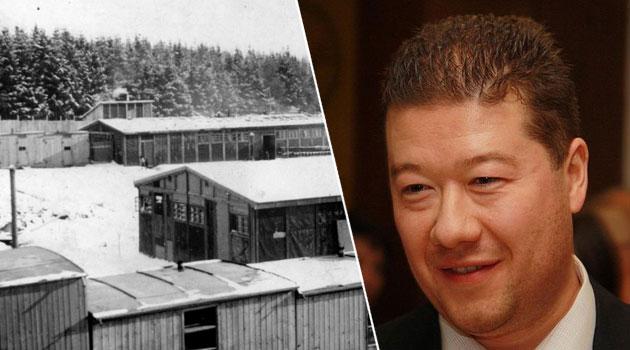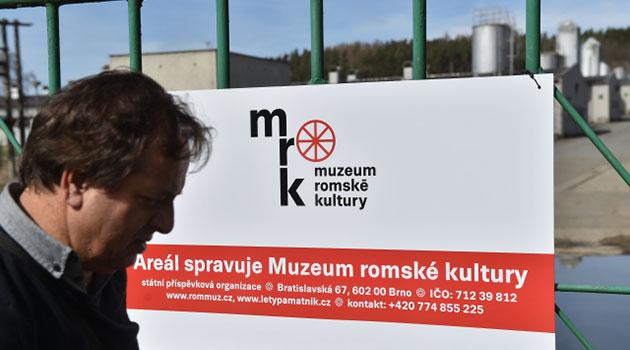Czech Police do not find politicians' remarks about Romani genocide site to have been criminal

The remarks made earlier this year by the chair of the “Freedom and Direct Democracy” movement (SPD), Czech MP Tomio Okamura, and by his party colleague Czech MP Miloslav Rozner about the WWII-era concentration camp for Romani people at Lety u Písku have not been found to be criminal. The Czech Police have shelved the case.
Blanka Valsamisová, the Prague 4 District State Prosecutor, has confirmed the findings to Czech Television. Police have now shelved all of the criminal reports filed with them in these matters, including the reports filed by the surviving relatives of the Romani victims of the camp.
Speaking in January, Okamura erroneously stated that the camp at Lety had not been fenced and that the inmates and been free to come and go. He later apologized for claiming there had been no fence, but alleged that nobody had guarded the facility most of the time and that the inmates had enjoyed freedom of movement within it.
When Okamura was accused of denying the Holocaust and the suffering of its Romani victims by making these remarks, he called the accusations a campaign against the SPD. He also said that while he did not doubt people had suffered at the camp, he has reservations about the way the remembrance site there is being addressed.
Czech MP Rozner (SPD) criticized the state’s decision to buy out the pig farm at the site of the former camp and used the phrase “non-existent pseudo- concentration camp” when referring to the Romani genocide site. A criminal report against both SPD politicians was filed in February by the chair of the Committee for the Redress of the Roma Holocaust (VPORH), Čeněk Růžička, with the Prague 1 District State Prosecutor.
A group of about 10 surviving relatives of the camp’s victims sought compensation for moral damage as a result of the remarks. In their view, both politicians had broken the law against publicly denying the genocide perpetrated by the Nazis against the Roma.
At the time, Růžička said he believed he would have more success with this accusation against Okamura than he previously had in 2014, when police shelved a complaint he filed after the politician cast similar doubts on the historical facts of the Romani genocide. The VPORH chair believes a clear signal must be sent to Czech society that it is not possible to tolerate such attempts to belittle the suffering of those imprisoned in Nazi camps.
Růžička also said Okamura’s apology early this year was not sincere. “Okamura manages to apologize just to the degree he thinks necessary,” the VPORH chair said in February.
Okamura’s remarks were also criticized by the Jewish Community of Prague, by the Museum of Romani Culture, and by the management of the Lidice Memorial. Another criminal report against Okamura was filed by the Konexe association.
The Social Democratic Youth and Czech Senator Tomáš Czernin (TOP 09) also filed criminal reports against Czech MP Rozner (SPD). Then-Czech Justice Minister Robert Pelikán also expressed his concern over Okamura’s remarks at the beginning of this year.
MPs for the Christian Democrats wanted to hold a vote on whether to remove the SPD chair from his post as Vice-Chair of the Chamber of the Deputies because of the remarks, but the lower house never held that vote – MPs never approved the program of the extraordinary session convened to discuss the issue on 7 March. As for the facts about the camp at Lety, historical research shows it was first built in 1940 as a disciplinary labor camp for men who were unable to document to the authorities how they made a living.
Persons living itinerantly were also meant to be interred in that particular kind of camp. In 1942 Lety was turned into an internment camp exclusively for Romani people and officially called a “Gypsy Camp”.
A total of 1 308 Romani children, men and women passed through the camp at Lety, 327 of whom died there, and more than 500 of whom were transported to Auschwitz from there. The Nazis, according to expert estimates, murdered 70 % of the Romani people living in Bohemia and Moravia during their reign.
